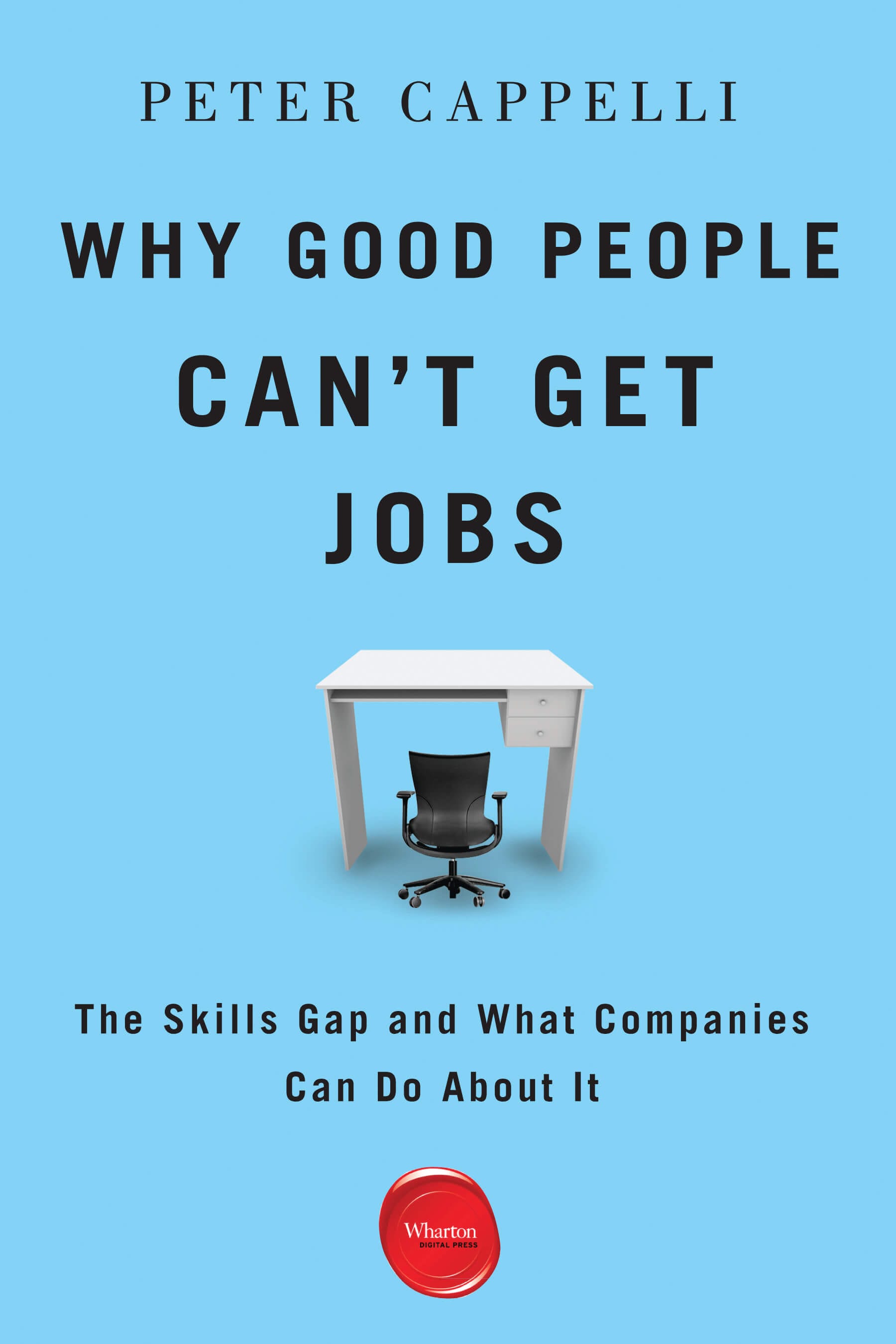Wharton Magazine sits down with Peter Cappelli, the George W. Taylor Professor of Management, to talk about his new book from Wharton Digital Press, Why Good People Can’t Get Jobs, published on June 1. In response to the book’s title, Cappelli says that the most common explanation one hears is a two-part story: jobs have changed and now require more skill than in the past and schools are failing and are not providing these skills. Though popular, this explanation is pure myth, he argues.
Wharton Magazine: Why doesn’t the common explanation have merit?
 Peter Cappelli: First, most of the people looking for jobs have been out of school for years, and the schools today are better than those they did go to. And in their postsecondary education, contemporary students are increasingly pursuing studies focused at getting them jobs. Take as an example a business degree in pharmaceutical marketing available in Philadelphia.
Peter Cappelli: First, most of the people looking for jobs have been out of school for years, and the schools today are better than those they did go to. And in their postsecondary education, contemporary students are increasingly pursuing studies focused at getting them jobs. Take as an example a business degree in pharmaceutical marketing available in Philadelphia.
My second point is that no evidence exists that job skill requirements have spiked or that the jobs that are hardest to fill are necessarily high skill. Some jobs requiring high skill are growing in numbers, but so are some low-skill jobs.
Third and most important, the people who actually do the hiring are not complaining about a shortfall of academic skills, nor are they looking to hire people right out of school. What they want and can’t find are people with job experience, typically in very specific areas. To the extent that there is a skills problem, it has to do with the skills one learns on the job.
WM: What then can companies do to fill their empty positions?
PC: They have to rethink the way they go about hiring. At the moment, especially in larger employers, the hiring process has become very mechanical, without a lot of space for judgment. One employer told me that 25,000 people had applied for a reasonably standard engineering job in their company and that the hiring systems indicated that none met the requirements. The HR people who used to decide, “Are all these job requirements really necessary?” and, “Even though this candidate has never done precisely this job, I’m sure they can do it,” have been replaced by software. If employers thought about their supply of talent as carefully as they thought about their office supplies, they could solve these problems easily.
WM: Do you have any advice for job-seekers?
PC: The first thing to remember is that this is not your fault. It is the worst job market in modern times, and the fact that you can’t find a good job is largely bad luck—to be coming into the job market now or to have lost a job during the downturn. It’s not fair, but we are stuck with it.
The second thing to remember is that it will get better. So the important thing to do is to position yourself now for that better period. Ask yourself how someone interested in hiring you in the future will look at and assess what you did in this period.
The best thing you can do is show that you are building skills, that you are not letting the ones you have get rusty, and that you are demonstrating the personal attributes that employers like: resilience, self-motivation and conscientiousness.
If you have to take a dead-end job to make ends meet, it helps to be able to show that you are doing something else beyond that job. Employers disproportionately focus on the last job one held, so find some way to distract attention from it, such as by volunteering or taking classes.
Editor’s note: More about this book and other Wharton Digital Press offerings at wdp.wharton.upenn.edu.


























